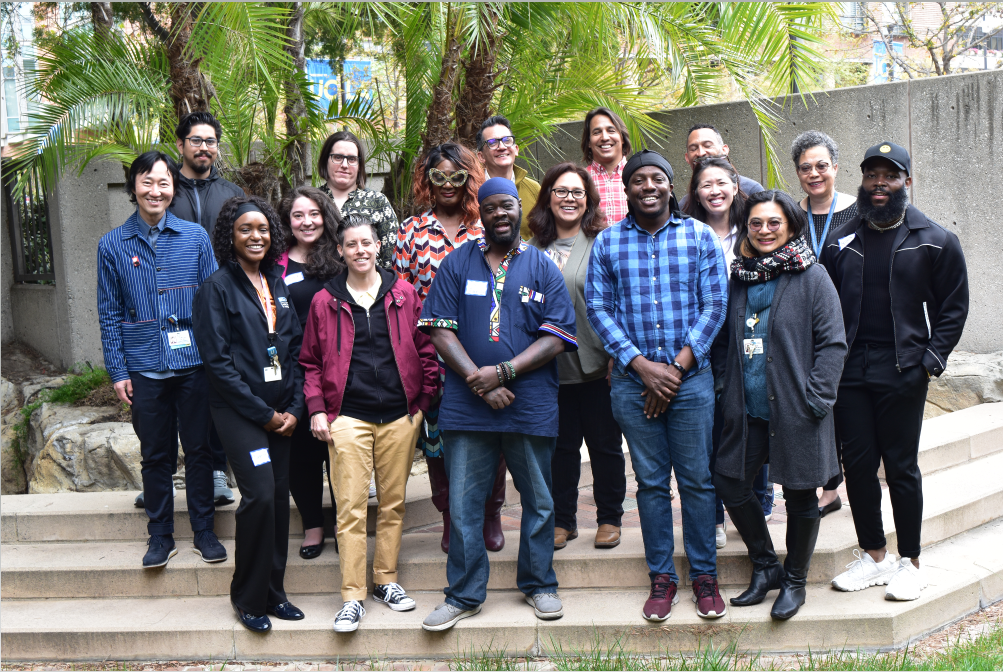CHIPTS recognizes the importance of community involvement in HIV prevention and treatment research. This community involvement ensures that our work remains relevant and meaningful to the diverse communities affected by HIV. The CHIPTS Community Advisory Board (CAB) plays a crucial role in contributing community perspectives and expertise to the work of the Center. Led by current CAB Co-Chairs Luckie-Alexander Fuller and Eddie Sanders, the CAB focuses on three key activities: advising CHIPTS scientists, disseminating research findings, and amplifying voices and perspectives.
Advising CHIPTS Scientists:
The primary goal of the CAB is to provide guidance and advice to our CHIPTS scientists. The CAB members contribute their valuable perspectives, drawing from their lived experiences, cultural insights, and knowledge of community dynamics. The CAB ensures that research topics, study designs, and methodologies are relevant and reflect the needs and experiences of the communities impacted by HIV. This relationship between the CAB and CHIPTS scientists enhances the scientific rigor and cultural sensitivity of our CHIPTS research, making the Center more effective in addressing the unique challenges faced by diverse populations.
Disseminating Research Findings:
The CAB plays a crucial role in the dissemination of research findings to the broader community. They provide input on strategies for effectively communicating research outcomes in ways that are accessible, culturally appropriate, and inclusive. By working closely with CAB members, we ensure that findings are disseminated through channels that reach various communities, including hardly reached communities. This proactive approach facilitates community engagement, encourages knowledge sharing, and empowers individuals with information to make informed decisions about HIV prevention and treatment.
Amplifying Voices and Perspectives:
People with HIV or at-risk for HIV who experience mental health and/or substance use disorders face unique challenges and barriers. The CAB actively engages and represents the perspectives of these communities, recognizing the intersectionality of their experiences. This inclusive approach promotes a more comprehensive understanding of the complex factors impacting HIV prevention and treatment, and it helps shape our research and inform the implementation of interventions and policies that are sensitive to the lived realities of those affected.
The involvement of our CAB in the Center’s research and dissemination activities has had an important impact on HIV prevention and treatment efforts in Los Angeles. The CAB’s input has facilitated the development of HIV interventions that address specific challenges faced by disproportionately impacted communities, and the CAB’s advocacy efforts have contributed to policy changes and resource allocation that have helped ensure marginalized populations receive equitable and comprehensive care. CHIPTS scientists and the CAB have also worked together to help increase awareness, access, and utilization of HIV prevention services in Los Angeles. We thank the CHIPTS CAB for their continued commitment to the CHIPTS mission as we work together to help end the HIV epidemic in Los Angeles and beyond.

